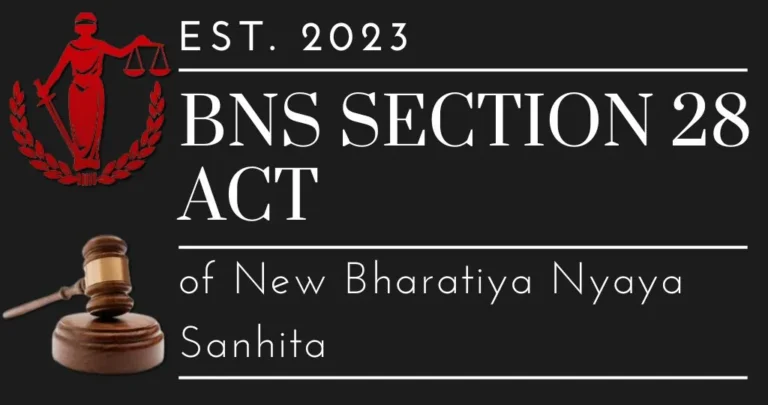
Punishment for Harboring Offenders under Section 249 of the Bharatiya Nyaya Sanhita, 2023
Punishment for Concealing or Harbouring Offenders under Section 249 of the Bharatiya Nyaya Sanhita, 2023
The Bharatiya Nyaya Sanhita, 2023 (BNS), replacing the Indian Penal Code, entered into force on 1st July 2024, updating the law relating to criminal law in India. Section 249 of the BNS addresses the offence of concealing or harbouring an offender with intent to save them from legal punishment. This section deals with cases where an individual knowingly abets a criminal by giving them shelter or assisting them in evading the law. The law imposes varying punishments based on the gravity of the initial offense committed by the individual being harbored.
What Does Section 249 State?
For More Updates & Regular Notes Join Our Whats App Group (https://chat.whatsapp.com/DkucckgAEJbCtXwXr2yIt0) and Telegram Group ( https://t.me/legalmaestroeducators ) contact@legalmaestros.com.
Section 249 prescribes the punishment of any person who harbors or conceals an offender, aware or having a reason to believe that the offender has committed an offense, intending to protect the offender from punishment. It sets out particular punishments based on the nature of the underlying crime:
Punishment for Harboring Offenders in Capital Crimes
If the offense for which the individual being hidden is guilty is punishable by death, the individual offering shelter or hiding can be imprisoned for a term of five years. They can also be fined. This is an indication of the gravity of assisting an individual to escape justice in instances where the most serious offenses are involved, like murder or terrorism, where the law requires the highest punishment.
Punishment for Harboring Offenders Facing Life Imprisonment or Long-Term Imprisonment
Where the initial offense attracts life imprisonment or has a maximum term of imprisonment of up to ten years, the individual harboring the criminal can be sent to prison for up to three years and is also subject to a fine. For example, if an individual knowingly shelters a convicted rapist or an offender in a grand fraud, he or she is liable to serve up to three years in prison.
Punishment for Harborers of Offenders in Lesser Offenses
Where the initial offense is punishable by more than one year but not exceeding ten years’ imprisonment, the harborer may be imprisoned for a term not exceeding one-fourth of the maximum period of imprisonment provided for such offense. Or they can be fined, or both. For instance, if the maximum penalty for the initial offense is eight years, then the individual who gives assistance may be punished with up to two years imprisonment. This provision seeks to punish in proportion to the severity of the offense by those who help to escape justice.
Definition of the Term “Offense” under Section 249
The word “offense” in this act is defined inclusively to include any offense for which an act is done outside India, if it would, if done inside Indian territory, be punishable under certain sections of the Bharatiya Nyaya Sanhita. These crimes are serious like acts of terror, violent offense, and offenses of criminal conspiracy. The statute practically considers these crimes as being committed in India, so hosting persons who performed these acts gets punished under the Indian law.
Exception: Spouse’s Shelter
One notable exception is found under Section 249, where the case is exempted in the event that the individual sheltering is the spouse of the offender. The provision identifies the special bond between spouses and insulates them from criminal offense should they aid their spouse to evade arrest, in light of the natural urge to defend one’s spouse.
Illustration: Hiding a Dacoit
For a better understanding of Section 249, let’s refer to the given illustration:
Individual X is aware of the fact that Y has engaged in dacoity (robbery with armed violence) and intentionally hides B to shield him from prosecution by law. Owing to dacoity involving life imprisonment as punishment, A can be sued for up to three years of imprisonment and in addition, liable to pay a fine.
In other words, the law makes it clear that assisting a person who has committed a serious offense to escape the law is also an offense. For example, if A gives shelter to B in his house or provides money to B to escape the city with knowledge that B is a dacoit, A would be offending under this section. The punishment for A would not be as harsh as for B, who had done the dacoity, but would be considerable to deter any encouragement of criminal activity.
Real-Life Examples to Explain Section 249
Example 1: Sheltering a Murderer
Assume that X is aware that Y has committed murder. Even though X knows that Y has committed a crime, he keeps Y hiding in his home for a few days. In such a scenario, as murder is punishable under death, imprisonment for a maximum period of five years and a penalty can be imposed on X for keeping Y hidden. The aim to safeguard Y from arrest incurs liability on X under Section 249.
Example 2: Concealing a Fraudster
Take the case of Z, who knows that W is guilty of a serious financial fraud punishable with a sentence of ten years. Z assists W in evading the police by offering false documents and shelter. As the offense is punishable with imprisonment for ten years, Z is liable to undergo three years’ imprisonment and be fined.
Example 3: Giving Shelter to a Person Convicted of Assault
Assume that P has assaulted, giving rise to grievous hurt, for which a maximum punishment is four years. If Q, being aware of this, facilitates P’s evading apprehension by procuring means of travel or shelter for P in an inaccessible area, Q might incur up to a one-year punishment (a fourth of four years). The example demonstrates gradation in the degree of punishment as per the degree of crime.
Why Section 249 Matters
The provisions in the law contained in Section 249 are of central importance in the integrity of the criminal justice system. In that it punishes those attempting to protect offenders from prosecution, the law detters any abetment of unlawful acts and sees to it that criminals face prosecution. The law is also a reminder that anybody who attempts to assist an offender in evading legal ramifications will also risk serious punishment themselves, thereby protecting the rule of law.
Conclusion
Under Section 249 of the Bharatiya Nyaya Sanhita, 2023, it is an offense to harbor or conceal a criminal, to ensure that individuals do not assist wrongdoers in evading punishment. It prescribes graded punishment depending on the intensity of the underlying offense, with the highest punishment for assisting those who are parties to a capital offense. The subsection contains an exception for spouses, recognizing the close relationship between married couples, yet still stressing accountability. In making these provisions, the law aims to discourage any person from financing criminality and to make the criminal justice system as a whole more effective.






